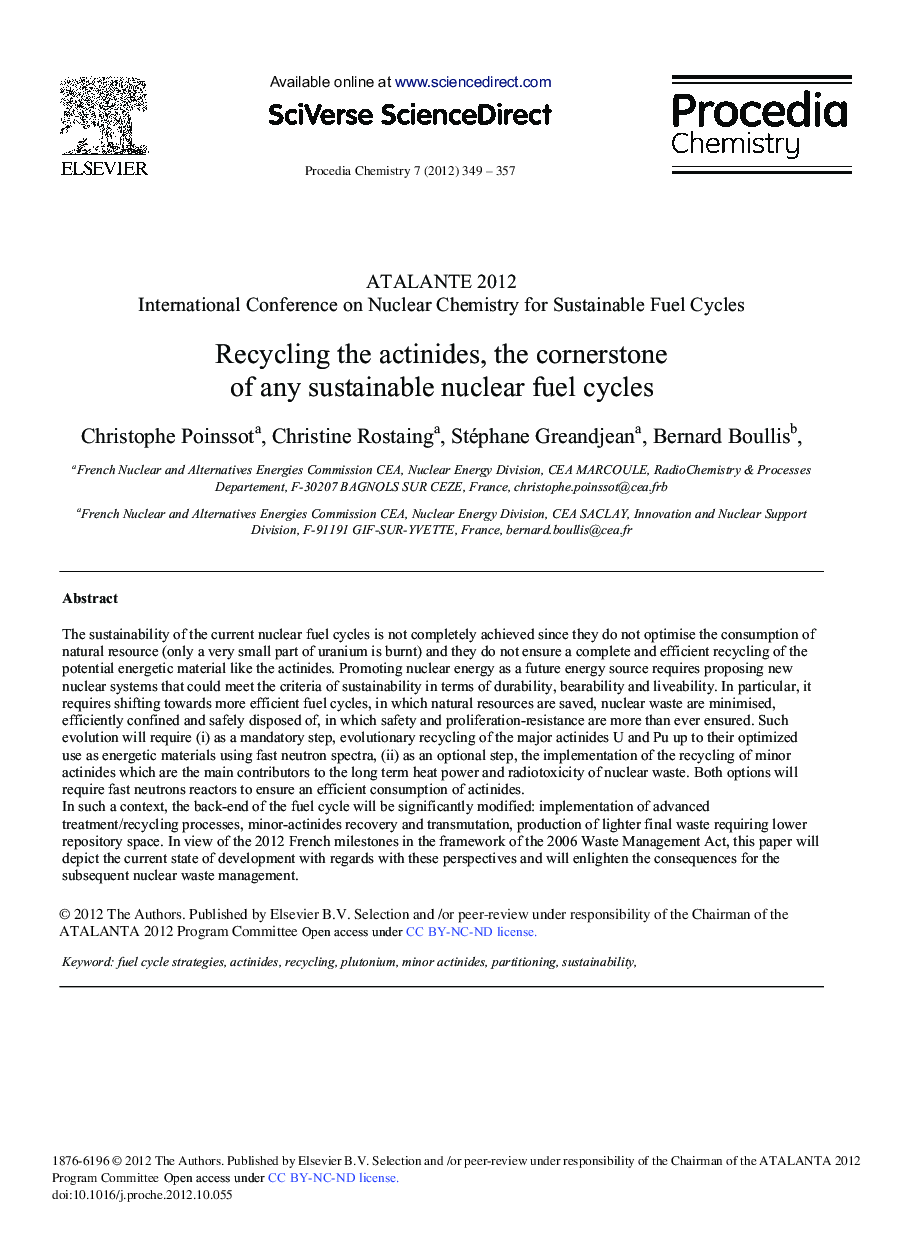| Article ID | Journal | Published Year | Pages | File Type |
|---|---|---|---|---|
| 240136 | Procedia Chemistry | 2012 | 9 Pages |
The sustainability of the current nuclear fuel cycles is not completely achieved since they do not optimise the consumption of natural resource (only a very small part of uranium is burnt) and they do not ensure a complete and efficient recycling of the potential energetic material like the actinides. Promoting nuclear energy as a future energy source requires proposing new nuclear systems that could meet the criteria of sustainability in terms of durability, bearability and liveability. In particular, it requires shifting towards more efficient fuel cycles, in which natural resources are saved, nuclear waste are minimised, efficiently confined and safely disposed of, in which safety and proliferation-resistance are more than ever ensured. Such evolution will require (i) as a mandatory step, evolutionary recycling of the major actinides U and Pu up to their optimized use as energetic materials using fast neutron spectra, (ii) as an optional step, the implementation of the recycling of minor actinides which are the main contributors to the long term heat power and radiotoxicity of nuclear waste. Both options will require fast neutrons reactors to ensure an efficient consumption of actinides. In such a context, the back-end of the fuel cycle will be significantly modified: implementation of advanced treatment/recycling processes, minor-actinides recovery and transmutation, production of lighter final waste requiring lower repository space. In view of the 2012 French milestones in the framework of the 2006 Waste Management Act, this paper will depict the current state of development with regards with these perspectives and will enlighten the consequences for the subsequent nuclear waste management.
